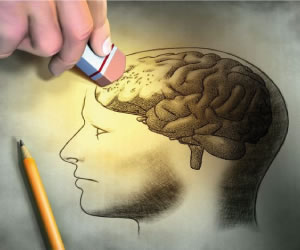
You do not remember a phone number? You are not sure where a city is located? You do not remember the recipe for the cake you really like and did some time ago? No problem: Google is there. More and more often the answers to your questions are provided by the Internet ...So live online!
Of course for those who have a few more years, compared to those born with technology, it is hard to accept this great change and accept the idea of finding more frequently friends to chat with on social networks like Facebook, rather than at a cafè or during a walk in the street. Without any doubt, the Internet has opened up horizons that were previously unimaginable, and it is very helpful in several areas. It allows you to save precious time and keeps you constantly informed.
But what does an excessive use of the network implicate at the cognitive level?
The tendency to rely on online tools for the recovery of any type of information is increasing among people around the world, without major distinctions of age.
The more we use the network to find information and counter data, much less we will use our memory, even when it comes to trivial questions we already know the answer or can find it by applying the logic.
We risk losing the ability to turn our attention to the real world that lies beyond the screen, and not to grasp its complexity.
Instead of trying to understand and memorize information it happens as if we rely on a kind of "external hard drive". Thus you know that what you are looking for is available at any time so why should you force yourself to memorize what you read?
The problem is that the short-term and long-term memory are skills that have to be constantly trained or will finish being deteriorated. If you rely on an "external hard drive" your ability to recall information will be reduced always more, and this can open the door to neurodegenerative diseases. The short-term memory, for example, is crucial for our thought. The long-term memory is essential to preserve our identity.

Pancake people
According to Nicholas Carr, world famous writer, the internet allows us to have a "too easy" life, just click on a link and you it will take you where you want.
Carr on The magazine Atlantic says: "The internet offers tremendous opportunities to access new information, but it has a very high social and cultural cost: along with the reading, it transforms the way we analyze things and the learning mechanisms.
Moving from the paper to the screen we lose the ability to concentrate, we develop a more superficial way of thinking, we become the pancake people: wide and thin as a pancake because, steadily jumping from one piece of information to the other thanks to the link, we get wherever we want, but at the same time we lose thickness because we no longer have time to think, to contemplate."
How to help our memory
So what should we do to prevent our memory from failure?
Surely, first of all, the careful use of smartphones, tablets and computers to find information would be a first step to ensure that your memory will thank you!
Secondly, leading a healthy life could be a great help.
It is proven: physical exercise enhances memory because it helps the survival of neurons and facilitates the formation of new memories, bringing the proper flow of blood and oxygen to the brain.
Not only that, the benefits increase following a proper diet, rich in fruits and vegetables.
Fat and excess calories are harmful: saturated fat and cholesterol, even, are particularly risky for the onset of the Alzheimer.
Third, and not less important, a good sleep and for the right amount of hours, improves the quality of your life as well as your memory.

The poor quality of sleep, in fact, would prevent the execution of the transfer process of memories from the hippocampus to the prefrontal cortex. The memories, so blocked in the hippocampus, would be overwritten by the new ones, losing forever the previous ones.
This is the reason why it is important to choose a mattress suitable to our physiological characteristics! Choosing a mattress Marion means not to have night posture problems, joint compressions and stiffness upon waking and, above all, means not to compromise your rest and thus the capacity of your memory.
